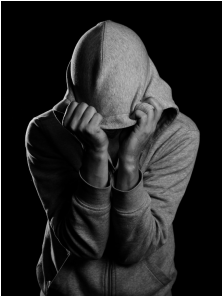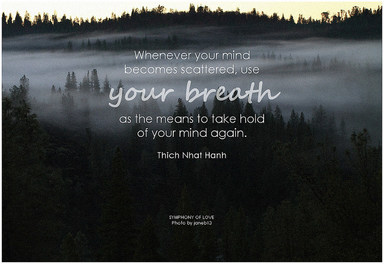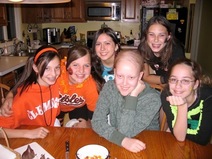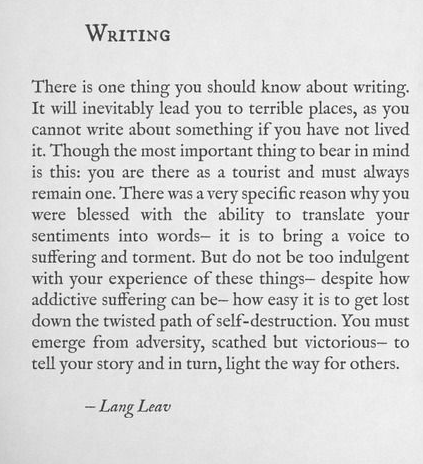|
Happy Holidays! While I know I'm a bit behind in posting here, I have written two pieces in the last 2 months for Cancer Knowledge Network. So, I wanted to share them here! The first - from November - is about the challenge of transitioning from pediatric to adult care for young cancer survivors: Challenging Changes. The second is from earlier in December and is aimed to be a call to action for AYAs to get involved in making the changes they want to see in the cancer centers where they are being treated: Calling All AYAs. Check out the links and post any comments or related suggestions below!!
1 Comment
This month is childhood cancer awareness month. While I love going gold for these 4 weeks of September, I think there is a lot more to this month than awareness. Check out my latest blog for Cancer Knowledge Network to learn what September means to me, and how I think we can use these golden days to take action, rather than just raising awareness.
I recently celebrated my 22nd birthday and was so happy to be able to go home to celebrate it with my family and friends. Having graduated college and moved away to Miami, so far from them all in Baltimore, has definitely been an adjustment. But, as with all the challenges in life, it is a learning experience.
For my birthday, my mom's sister and her family were able to drive down from New York to be with us for the weekend. I am very close with my cousin, Julia, and was so happy to spend some time with her that weekend. The most special thing of all was that, when it came time to open my birthday gifts, Julia told me she had picked out their family's gift to me all by herself. When I opened it, I was so excited and so happy to see what it was. Julia had picked out a simple, silver Alex&Ani bracelet with the "Path of Life" charm. The charm on the bracelet says "Knowledge, Motivation, and Strength" and on the back of it there is a path design that twists and turns. I don't think such a message could have come to me at a better time. Having recently graduated college and moved to an entirely different city surrounded by completely new people, I was enjoying the excitement of all the new things. However, I was also trying to figure out what part of my identity in this new place I would want "cancer survivor" to be. I was feeling so healthy, so happy, and so free in this new place during those first weeks here. I got caught up in all of the new things and I guess I have not posted here in a long time because, for the first time in a long time, I did not have to think about my cancer at all for over 2 months. I was not involved in any activities related to cancer. I was not around any people that knew I had cancer. I felt I had developed enough other aspects of my identity that I didn't need to disclose that as a part of my identity right away. And that felt good for a little while I think. But, I have missed something these past 2 months and I couldn't figure out what it was. Looking at Julia's bracelet, I realized it was because of those twisting, turning experiences 7 years ago that I am where I am now. It is because of those experiences that I was driven down the path I am on. Last week, I gave my boyfriend (who I met soon after moving to Miami), a copy of my book. I felt that it was important for me to share with him those experiences that have shaped me into who I am and what I want to do with my life. It is strange to me how I continue to learn and realize new things about myself and my experiences with cancer as I get older. Now, as a young adult, I think about my cancer experiences in a very different way than I did when I first started this blog. I am realizing how challenging it can be for young adult cancer survivors to navigate the world in the same way as their healthy peers. When you move to a new place, make new friends, date, etc., it is challenging to know if, when, and how to share your cancer experiences with others. For some, you may feel like you don't want to share any of it, and you may feel like it has no part in your identity. For others, you may feel it is a big part of your identity. You may have no long-term effects from treatment that affect your health, or you may have many. There is such a wide spectrum along which the impact of cancer on you may fall. I graduated from Duke University this past weekend and the commencement speaker was Duke’s basketball coach, Mike Krzyzewski. I was really moved by his speech, which was one that clearly came from the heart and surprisingly philosophical for a renowned basketball coach.
The three phrases that stuck with me the most were:
The more I thought about his speech and these phrases, the more I began to think that they were just as much applicable to cancer patients and survivors, as they were to college graduates. When I sat there in the football stadium at Duke University, listening to Coach K, I had the strange experience of my life flashing before my eyes. Clarissa at 4 years old, being too tired from chemo to run around outside. Clarissa at 8 years old playing with friends and running through the rain puddles, as healthy and happy as any child could possibly be. Clarissa at 10 years old, holding her first dog, succeeding in school, and beginning to become a teenager. Clarissa at 13 having her whole world crash down around her. As I listened to Coach K speak, I couldn’t help but think back to the time when I had no idea if I would make it to that seat I was sitting in. I had no idea that I would ever reach the end of college – especially not the end of college at my dream school. And then I thought about how I got where I was sitting, how I made it into that stadium for Duke University Commencement 2016. I think I had done exactly what Coach K had suggested, without realizing it, because of my experience with cancer. My experience with cancer introduced me to a team of incredibly supportive and talented doctors, nurses, tutors, teachers, friends, and neighbors. Cancer enabled me to get on a team with good people who continue to support and guide me to this day. Cancer taught me to expect great things because the alternative was not one I wanted to consider. I decided that getting through cancer would mean thinking positive and dreaming big – whether or not I would see those dreams through. And I learned to follow my heart because cancer taught me that life was not a guarantee and any time I spent unhappy or unfulfilled was time wasted. This life we live is given to us to find joy when things get tough, to find fulfillment when opportunity seems scarce, and to follow our passions so that we can give back to the world and make a difference. No matter who you are or where you are at in your experience with cancer, remember to expect great things for yourself, build a good team of supportive people who care about you and expect great things of you, and follow your heart! You might just find yourself, many years later, in a place you could never have imagined!  I came across an article recently on the Dana-Farber Cancer Institute blog. The article talks about medical phobias and what you can do to overcome them. I think this is a really important topic because it is hard to go through cancer treatment without developing some anxiety or fear about one or more aspects of your medical care. When I would go to my outpatient visits or inpatient stays at Johns Hopkins, I fortunately didn't get sick to my stomach because I was able to focus on looking forward to the people there - the nurses and doctors who became my dear friends. However, I definitely experienced anxiety when I went through my treatment as a child. I remember that each time I would get in the car to drive to the Children's Hospital of Philadelphia (where I was treated during my first bout with cancer), I would get sick to my stomach. The simple act of thinking of going to the hospital, where I knew I would encounter nausea, pain, etc., made me so nervous. I was just too young to understand that is what I was feeling at the time. So, what can you do if you are having fear or anxiety related to aspects of your cancer treatment? Relaxation strategies like mindfulness and meditation, which I highlighted in my post last week, can be really helpful. I think big part of the reason I didn't get anxious when going to Johns Hopkins was that I exercised mindfulness - I focused on the people I would see and not the things that would have to happen to me. But, sometimes phobias and anxiety can't be managed on your own. That's when it's really important to reach out for professional help. Let your doctor know you feel you are experiencing anxiety or a medical phobia, and ask he or she to refer you to a psychologist for consultation. Psychologists are trained to help you work through your anxieties and phobias so that you can actually overcome them, rather than just avoid them. This gives you the opportunity to go through the rest of your cancer treatment without that fear or worry hanging over you, freeing you from that added discomfort.  I think mindfulness and meditation are two highly underrated practices, especially among teens and young adults. I know I spent most of my time growing up thinking of meditation as something silly that older people do, mostly because my dad likes to meditate. But, as I have started going to yoga classes and learning more about meditation, I have found that it can be incredibly powerful. Meditation involves turning your attention to a single point of reference - for me, I focus on breathing at the end of yoga. I lay on the mat and focus on hearing and feeling my breath as I inhale and exhale. It strangely makes you lose sensation in your limbs, as it brings immense mental and physical relaxation. Mindfulness is similar, but it is something I have less experience with. I have read a lot about mindfulness recently though, due to it's increased popularity as a tool to help cancer patients cope with the mental and physical effects of treatment. I think mindfulness and meditation have great potential for teens and young adults going through treatment because the physical relaxation these exercises provides can help bring temporary relief from physical pain and other ailments. Additionally, going through treatment, we face many social challenges that can increase the amount of stress we are under, and I know I often suffered from negative moods that brought me down as well. For survivors, mindfulness and meditation, as I have found, are also super important. They can be really great ways to work through chemo brain, help you find temporary relief from post-treatment related physical challenges, and maintaining inner calm when you are at doctor's appointments or other stressful situations. The best part is, these things can be done whenever and wherever :) I want to share with you an article from the Mayo Clinic, written by a nurse practitioner who works for the Mayo Clinic Health System. She shares the benefits of mindfulness exercises, as well as some pointers on how to practice them. As she writes, mindfulness can reduce stress, anxiety, and depression and it can improve your mood. So, there is a lot to be gained from it. I encourage you to check it out and give mindfulness, meditation, or both, a try! A critical tool for teen/young adult cancer patients or survivors is social media. Two years ago, I published a chapter in a book by the Healthcare Information Management Systems Society in which I discussed the value of social media from a patient’s perspective (you can find the book here if you want to read more). Through my cancer treatment, I had found that social media was a lifesaver in helping me stay connected despite the isolation imposed by my treatment. But, I did not have nearly enough of an appreciation of the powerful resource-sharing ability of social media until the last year or so, when my blog and book brought me into the world of podcasts and Twitter chats.
However, I have also found that it can be a challenge to find resources through social media, since it is sometimes difficult to find relevant organizations and articles depending on the social media platform. So, I thought it might be helpful to dedicate a post to how to use the power of social media when you are looking for resources and support. No matter what stage of the cancer journey you are in, you can find answers to questions and advice through strategies and stories provided by organizations and other patients/survivors. I know I’ve posted before about the benefits of Facebook and websites like CarePages and Caring Bridge for sharing updates with family and friends, as well as staying connected to the world around you when isolated by treatment. What I have yet to talk about is the power of Twitter and Facebook for finding resources. I didn’t have a twitter account until about 2 years ago. I didn’t believe in posting short blurbs about what I was eating or where I was. But, when I started to notice how many influential cancer support organizations were on Twitter, and sharing incredible resources, I realized that little blue birdie had something else to offer. So, I turned my personal Twitter account into an account dedicated to my blog and book. I started following cancer support organizations and people who were leaders in the effort to help adolescents and young adults get care that is appropriate for their age and unique social/emotional needs. In doing so, I’ve noticed that Twitter can be an incredibly powerful tool to find resources. One of the easiest ways to find resources on Twitter is by searching for hashtags relevant to the topic you are looking for. So, to help give you a place to start, here are some hashtags that lead you to a list of tweets with helpful resources from awesome organizations: #ayacsm – this is a great hashtag co-founded by Emily Drake (@EK_Drake) a health promotion specialist who has done some awesome work in helping promote the AYA cancer cause. She was also part of a recent paper about social media use and online resources for AYA cancer patients and survivors (you can find it here). This hashtag leads you to twitter chat tweets, resources, and more. #ayacancer or #tyacancer – these lead you to resources shared by great organizations like Teen Cancer America and the Ulman Cancer Fund. #AYA –leads to resources from the Canadian Partnership Against Cancer (@Cancer_Strategy) and Young Survival Coalition, as well as the AYA Task Force. #teencancer – leads to tweets by lots of different groups and individuals. If you look up these hashtags, you can follow the organizations you find and be updated with resources they share. For example, Teen Cancer America has a #MondayMotivation post, which is really great to read every Monday. Also, by following organizations and individuals involved in helping teens and young adult cancer patients and survivors, you can find out about what they are doing. Last week, there was a Twitter chat about #ayacsm in which people from around the world were allowed to share thoughts on how to get more people involved in the AYA cancer movement. Avenues like that are great ways for us to voice our thoughts and share experiences. Additionally, those kinds of things are great ways to connect with other patients, survivors, and advocates. Similarly, Facebook can be really useful to find resources from helpful organizations and connect with other people going through similar experiences. Most organizations have Facebook pages, so if you like their page, their posts will show up in your news feed. This is an easy way to find resources that are new and helpful! On Facebook, I follow Stupid Cancer and Critical Mass. They both regularly post articles and resources that I think are really great. Sometimes these organizations also have questions they pose or events they share, so you can find ways to meet other patients/survivors. If you have any questions about using social media as a patient/survivor, feel free to reach out to me! I’d be happy to try to help you find resources related to whatever you are looking for. Also, I encourage you to check out the resources page on my website, as well as the list of resources at the end of my book (Riding the Cancer Coaster: Survival Guide for Teens and Young Adults, available on Amazon), to find out about more organizations to follow.  In a recent article from U.S. News and World Report, reporter Lisa Esposito writes about the changing meaning of “cancer survivor” in the context of better cancer treatments and longer lives for those facing cancer. According to the article, “Cancer advocates now consider survivorship as part of a continuum – from the moment people learn they have cancer, through treatment and beyond.” I think this is such an important shift in definition to consider. For so long, “cancer survivor” seems to have indicated that one has completed cancer treatment and, to me, it seems to imply that completion of cancer treatment equals never needing to confront significant health challenges again. However, as those of us who are cancer survivors know, that is not necessarily true. Newer and better treatments mean we get to live through things that may have killed us before. Yet, those newer and better treatments often come at a cost – long-term complications and the possibility of negative health outcomes. I therefore seriously appreciate this article for recognizing the significance of the changing meaning of cancer survivor. As a psychology major with an interest in coping with illness, I have read many studies that refer to cancer as a chronic illness, primarily due to the duration of cancer treatment and the complex management of treatment-related health issues required of cancer survivors. When you finish cancer treatment, you suddenly see care providers you had seen daily or weekly only once or twice a year. While some patients are involved in survivorship clinics that help them to monitor their long-term well-being, many are lost to follow up. Additionally, it is easy to forget the importance of normal health monitoring after finishing cancer treatment. Visiting a primary care doctor, a dentist, an ophthalmologist, a gynecologist, a dermatologist, or others are all really important things to do, especially if you suffer from particular late effects from treatment. For teens and young adults, it can be really difficult to manage all these appointments and issues. I know I struggle to remember to schedule my many different appointments each year, especially now that I get ready to graduate college and am searching for jobs – thus unsure of where I will be living next year. At an age when our lives are changing so significantly, managing survivorship can be a lot to handle. As the U.S. News article highlights, quality of life is becoming a major focus for survivorship care. While I think it is wonderful they discuss this, I believe that such a focus on quality of life in survivorship care still has a ways to go. Especially in the case of teens and young adults, addressing quality of life for survivors should also involve teaching young people how to manage their healthcare so they do not leave home or move somewhere new feeling overwhelmed and confused. If you are a teen or young adult cancer survivor and transitioning to college or a career, I congratulate you on reaching such an awesome milestone. At the same time, I advise you to take some time to talk to your oncologist about ways to best manage your healthcare going forward. Also, the National Cancer Institute has a great set of resources related to cancer survivorship and managing your healthcare after cancer treatment, so be sure to check them out too! While it is wonderful to be done treatment, it’s really important to take care of yourself in the years to come and be prepared for any curves or bumps in the road that you may encounter :) I recently received a really nice message from someone who read my book. He told me how reading it inspired him to write about his own experiences. He believed, as I have for quite some time, that there are not enough resources made by cancer patients/survivors for cancer patients/survivors. I think these kinds of experience-driven resources can be the most useful, since they provide a degree of understanding that doctors and psychology researchers can't compete with. So, I wanted to write a blog post about how to write about your cancer experiences. Writing about your cancer experiences can be really helpful to others, but it can also really help you. I know that in my own case, writing my blog posts and writing my book has helped me to process my cancer treatment experiences and the challenges I have faced as a survivor. Writing can have a really therapeutic impact, even if you don’t share what you write. It’s a great way to just get thoughts and feelings out of your mind so they can’t trouble you anymore. One of my favorite poets, Lang Leav, wrote a wonderful poem about the power of writing. Leav poignantly notes that writing may lead you to terrible places, since you cannot write about something you have not lived through. Writers are tasked with “bringing voice to suffering and torment” but must also “emerge from adversity, scathed but victorious” such that you can “light the way for others.” So, how do you do that? How do you process your suffering without getting “lost down the twisted path of self-destruction” caused by “being too indulgent with your experience of these things” ? When you delve back into your suffering, and write it out, you must remain a tourist to those experiences as Leav recommends. Do not wallow in the suffering but, rather, look through those tourist’s eyes to perceive what can be learned from that suffering. Basically, when you write, write with a purpose. It sounds complicated but I will tell you that I have found it to be relatively simple. I never sit down to write about a challenge I have faced or an obstacle I have encountered without holding in my mind the lesson learned from that challenge or obstacle. I make sure that, when I write about suffering I have experienced, the story of suffering acts as a lead-in to a piece of advice or word of wisdom. After all, every experience of suffering teaches us something, even if the only thing you learn from it is that you can actually survive such suffering (something you likely would not have believed before). That simple realization of possibility, conveyed through writing, can provide immense hope to someone else. With that, I encourage you to write about your challenging experiences, whether they are related to cancer or not. You never know who may be encouraged and inspired by your words.  A major factor contributing to an individual's ability to stay positive and cope with having a serious illness is the support system that surrounds that person. For teens and young adults with cancer, friends can be a really helpful part of a support system because they can provide some "normal" interactions and experiences in the midst of such an abnormal situation. However, communicating and interacting with friends after a diagnosis of cancer can be really complicated and confusing. Friends may not want to say the wrong thing so they may say nothing to you at all, thereby coming across as ignoring you and your situation even though that is not actually the case. You may not know what to say to your friends or how to say it and that is an added challenge. I know I personally struggled a lot with maintaining friends during my treatment. I'm not entirely sure how much of that struggle was related to them not knowing how to act around me or related to how much I was unsure how to communicate my unique situation to them. Either way, I sometimes wonder how things may have gone differently had I been given advice on the subject. In an effort to help you avoid my particular struggle, I want to share a great resource I came across recently. The National Children's Cancer Society (NCCS) is an awesome organization that provides financial and informational resources to children with cancer and their families. They have also started to develop more and more resources for teenage cancer patients and survivors. A particularly helpful resource they have produced is called "An Educational Guide for Friends of Teens with Cancer." The guide is meant to be given in its entirety to a friend to help him/her understand what to do and what to say for you - their friend with cancer. I definitely recommend sharing it with your friends, or even just taking a look at it yourself so you can get some ideas on how to communicate with your friends about your cancer and your treatment! |
Archives
April 2021
Categories
All
SubscribeTo subscribe to my blog, click RSS Feed above. If you are using Google Chrome, click here and add the RSS subscription extension (by Google) in order to be able to subscribe to my blog!
|


 RSS Feed
RSS Feed

